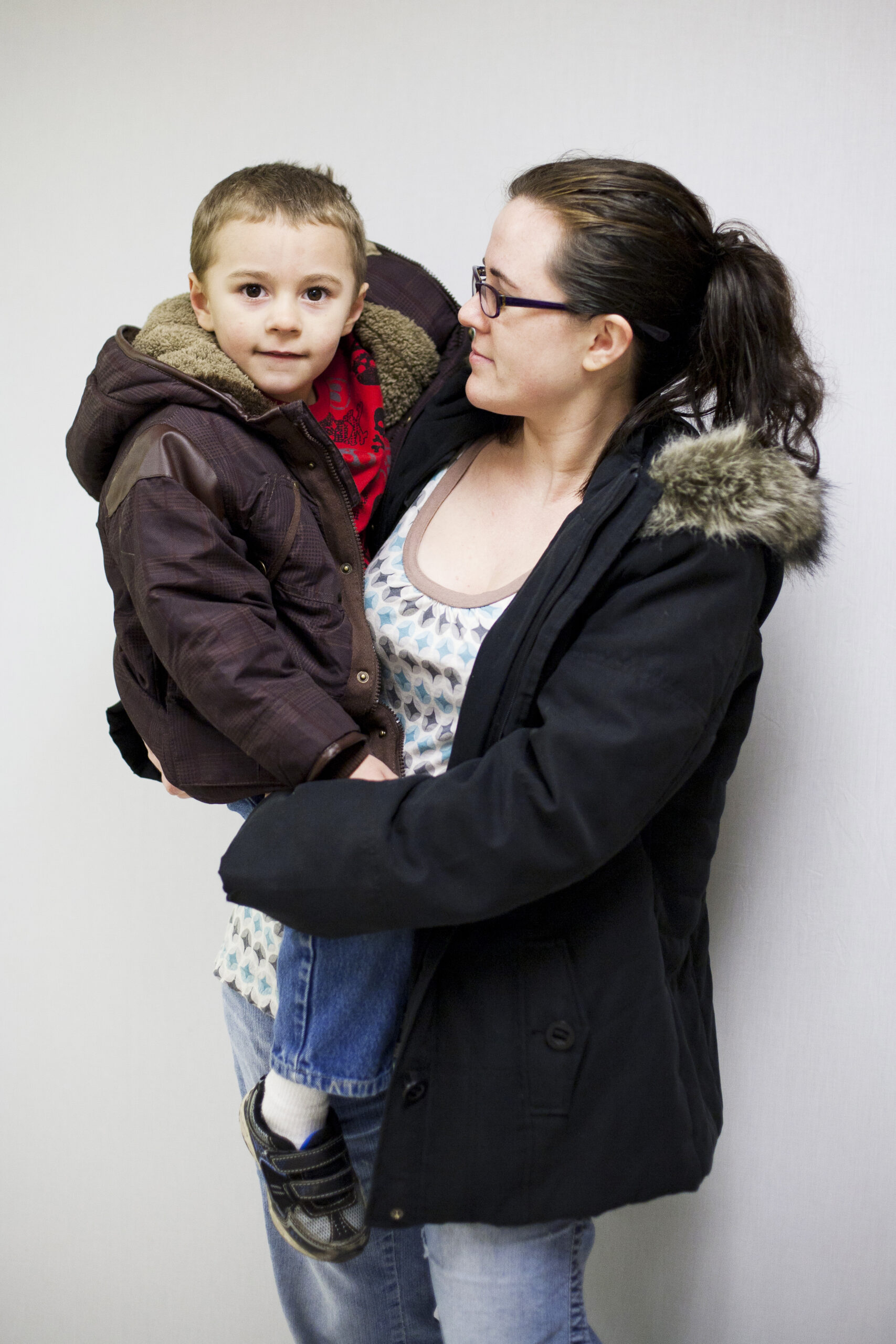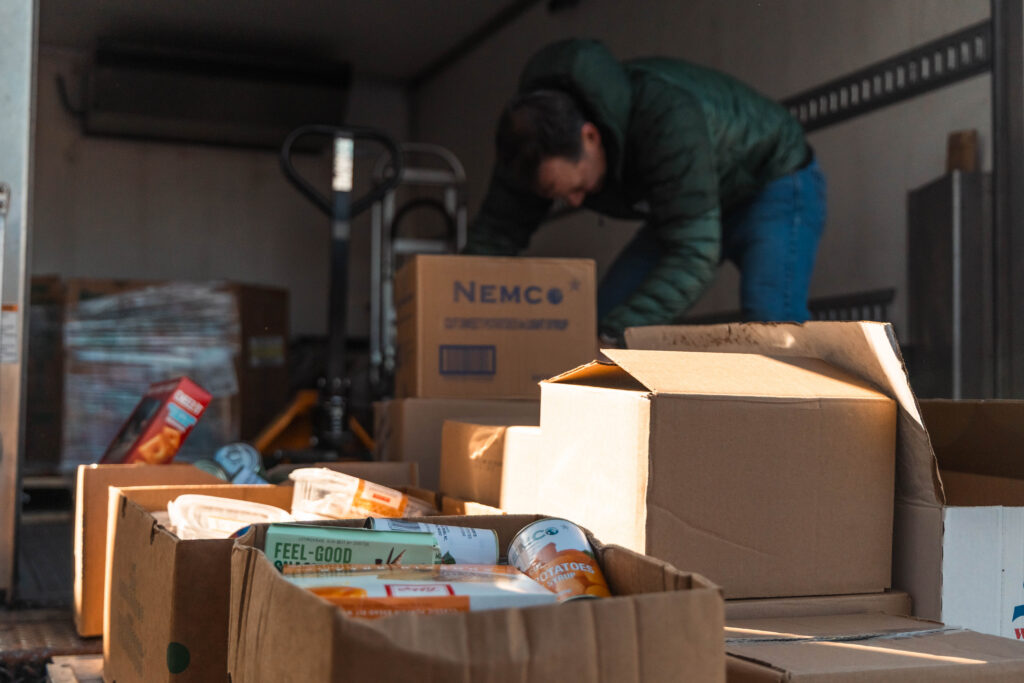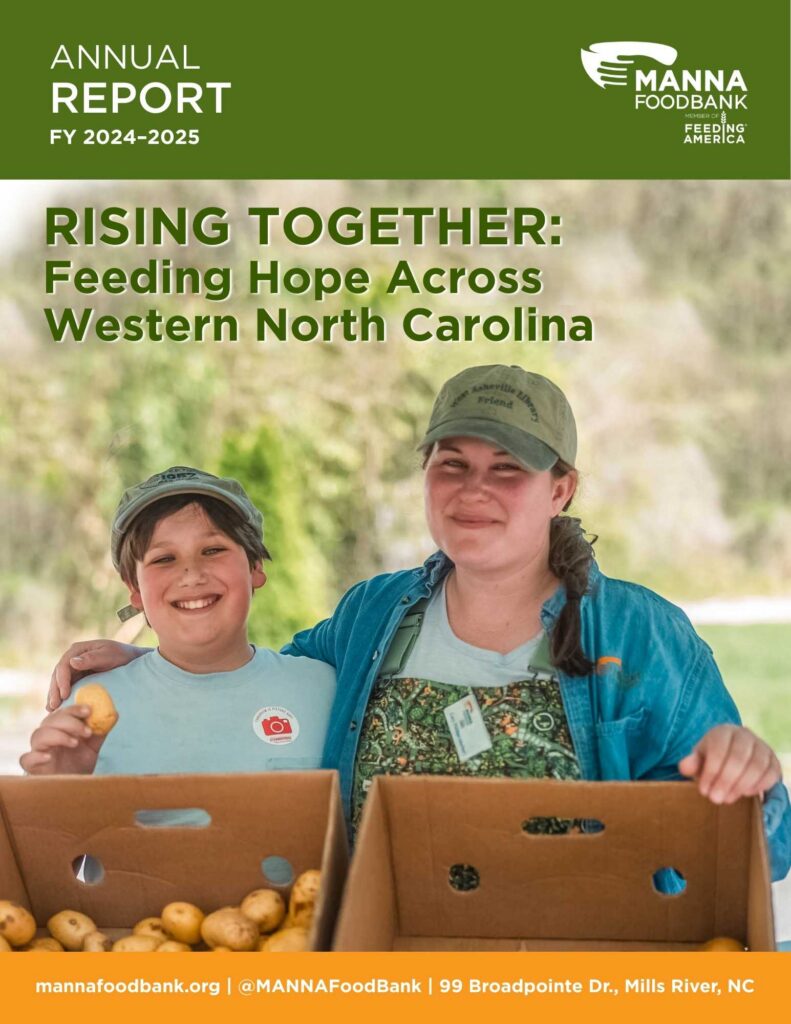
Have you had to choose between paying for food and paying for health care in the last year?” Clients in the Hunger in America 2014 study were asked questions like this one for the first time since the study began in 1994. The answers they gave help to provide a snapshot of what life is like for the people in Western North Carolina struggling with food insecurity.
Food insecurity can mean bare cabinets and empty refrigerators, but it can also lead to insecurity in many aspects of life. According to the HIA 2014 report, 107,600 people in our 16 county service area sought food assistance last year. 3 out of 5 of those households are surviving on $10,000 or less a year. Spending trade-offs are necessary for survival.
- 75% of households had to choose between paying for food and paying for utilities; 28% made that choice every month.
- 74% of households had to choose between paying for food and paying for transportation or gas; 28% made that choice every month.
- 57% of households had to choose between paying for food and paying for rent or mortgage; 21% made that choice every month.
- 64% of households had to choose between paying for food and paying for medicine or medical care; 24% made that choice every month.
For many of these households, food assistance means food on the table and more. If people have access to FNS (food stamps) or food from a pantry, or dinner from a soup kitchen, that means money that can pay the rent, or fill the car with gas in order to get to work the next day.
Linda, a food bank client, described the slippery slope that is the landscape for so many people in our region who are living at or below the poverty level.
“I have to figure out which bill I can put off until the next month. I finally had my phone disconnected, partly because I was getting a lot of calls from debt collectors. If I had the money, I would gladly pay what I owe.” Sometimes the loss of a job or an illness can create a situation that is almost impossible to climb out of, particularly for people making minimum wage. In Linda’s case, her car insurance lapsed because her paycheck didn’t clear until 3 days after the payment was due. “Now I have to go to the tag office and show them that I had it reinstated,” she said. “And plead with them to not charge me the $50 fine. If I didn’t have the money to pay for my car insurance, how am I going to have money for the fine?”
By supporting MANNA, you are not only providing food, you are helping to ensure that the people struggling with hunger in our region have the opportunity to make a better life for themselves and their families.



